Connor McKnight’s masterfully restrained menswear honours the quiet beauty of everyday Black life
‘The Black mundane’ is how American designer Connor McKnight – the latest focus of Wallpaper’s Uprising series – describes his aesthetic, which was born from family memories and honed at New York’s Parsons School of Design

Rising talent, names to know: ‘Uprising’ is a monthly feature highlighting an energetic new vanguard of fashion talent, selected by the Wallpaper* style team.
Crib notes
Name: Connor McKnight
Brand: Connor McKnight
Alumnus of: Parsons School of Design
Signature style: Masterfully restrained menswear that honours the quiet beauty of everyday Black life.
Design philosophy
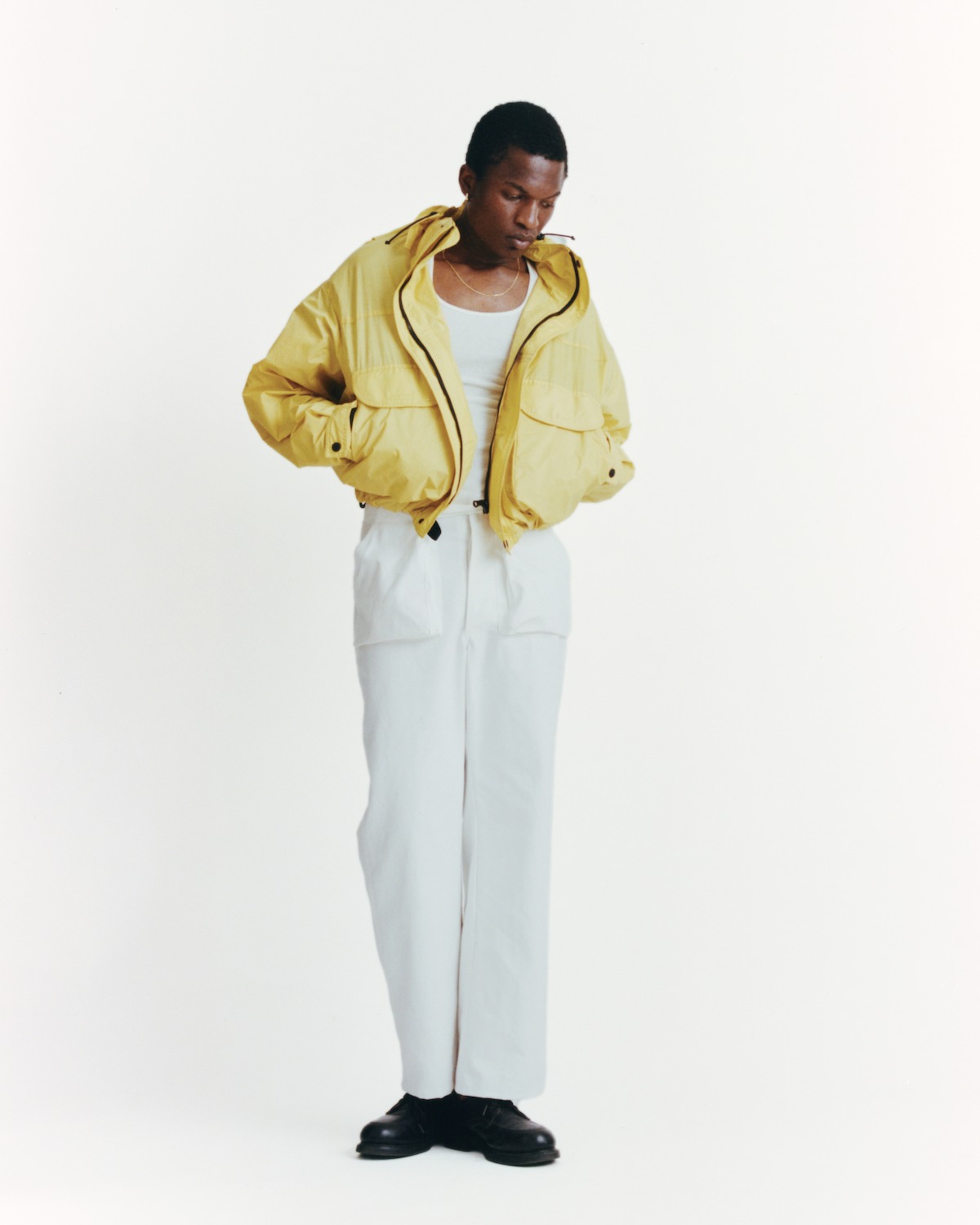
There’s an essential beauty to Connor McKnight’s clothes that can be traced back to his perfectly ordinary upbringing. The youngest of three brothers, the Bed Stuy-based designer grew up in a happy Black middle class family in the suburbs of Washington, DC. Both his parents are creatives who became lawyers – his dad a blues guitarist who DJ-ed a local radio station, his mum an aspiring designer whose sewing machine he learnt to use during high school. Transforming quotidian histories learnt from a 30-strong group chat of family members into personally resonant clothes, McKnight terms his aesthetic ‘the Black mundane’ – though don’t let the word mundane fool you.
Receive our daily digest of inspiration, escapism and design stories from around the world direct to your inbox.
Anything but dull, McKnight's restrained designs celebrate the everyday richness of Black life. ‘A lot of work these days focuses on some of the more unfortunate aspects of our lives,’ the designer says over video call from his New York studio. ‘I don’t want to minimise the effect of those events on many Black Americans, but I do think that there's more to our lives. My mission is to highlight those beautiful small moments that people don't talk about as much.’
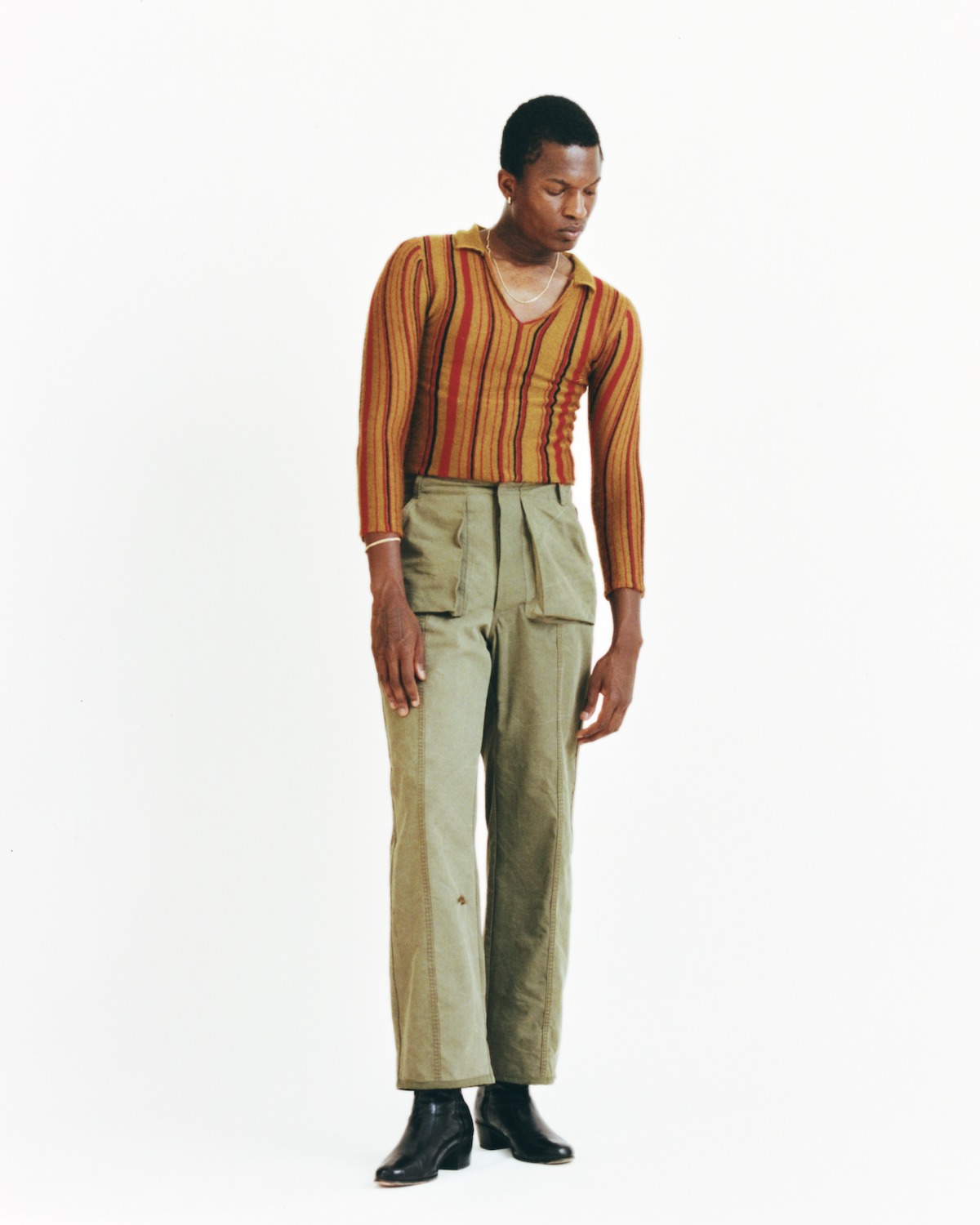
Working from a base of camping and military deadstock, McKnight’s design language skews the delicate formality of tailoring and dressmaking with the hardy, all-American practicality of outdoors gear. Think: beat-up Carhartt workwear meets the weightless glamour of an Armani suit. McKnight’s journey to this place unfolded slowly but naturally. He came to New York to study business at Fordham University, but an internship at Kith during the peak of the streetwear movement diverted him into the fashion world. ‘Every single release that we had, there was a huge line going down the block,’ he remembers. ‘It was all very energised and exciting. So I went back to school, to Parsons, and over a two-year intensive programme learnt how to make every single thing possible. It really changed my life.’
After graduating, McKnight took on production for deadstock pioneer Bode, and by the time the pandemic hit, he was ready to go out on his own. Confined to the four walls of his apartment, his first designs returned to the final pieces he made at Parsons – a tailored coat and a goose down puffer that didn't turn out quite as planned. ‘I bit off more than I could chew,’ he remembers. ‘I always wanted to give it another go. This time, I played with utilitarian nylon, crunchy textiles and shapes of classic luxury. It came out great.’
McKnight’s inspirations are, like his clothes, personal. He loves the technical skill of 1980s Armani and the playful idiosyncrasies of Issey Miyake’s 1990s pleats. But he’s also drawn to personal and collective histories, from the shirting spotted in his grandfather’s yearbook to the flight suits of the Tuskegee Airmen of World War II, or the sensual attire of 1920s Washington jazz club, Bohemian Caverns. Hitting an accessible grade of chic – not too decorative, yet still special in feeling – his clothes aim to bridge the space between the craft of luxury houses and what people actually live in. His main goal is to make pieces that others will wear to death.
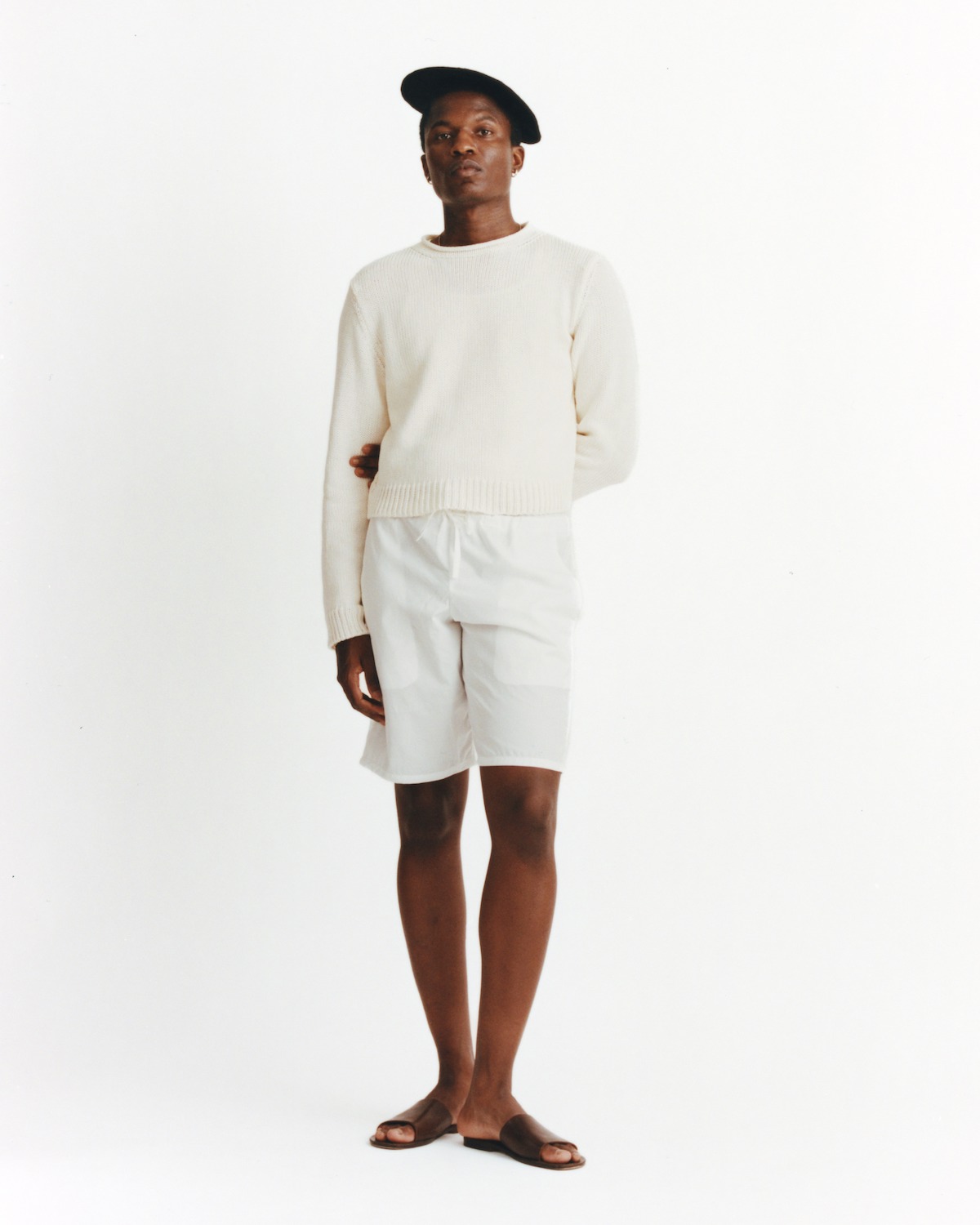
A lot of this, he says, comes down to a specific feeling. ‘I have this blue hoodie that I wear all the time,’ he says. ‘It's the plainest zip-up, and when I bought it, I had no idea that it was just going to be the thing that I would wear every day when I go to get coffee, when I run out and do something. Over the years, I've started to catch that feeling when I make something. There’s something nice about that ritual, returning to that one thing that feels right. My process is about that – elevating regular life with elements of beauty.’
Over the seasons, he’s faithfully reworked a handful of designs that have become his signatures – primarily outerwear. ‘Coats have an importance to them,’ he says. ‘They’re the most visible part of an outfit.’ Two standouts include a fisherman’s wading jacket with box pleats that fold on the back like fish gills, and a bulky hunting jacket with oversized utility pockets. ‘You see them at vintage stores everywhere, and the more destroyed they are, the better they look,’ he says. This past season, both pieces were reborn – one in sunny yellow, made from 1970s family tent fabric; the other in rich, calfskin brown leather. ‘Old basics, but refined,’ he says. The collection is, aptly, titled ‘Ease’.
Over the past couple of seasons, he’s expanded his remit to include womenswear. But rather than simply shrinking his utilitarian menswear shapes, he’s created pieces that are surprisingly feminine – cascading dresses, body-hugging shirting, and functional yet chic outerwear. ‘I don't want to just chuck men’s clothing onto women and hope it works,’ he says. ‘That’s not the right way.’ Designing for women, he adds, has reshaped how he approaches menswear, too. ‘I’ve been making these painstakingly slow silk chiffon gowns, and they take so much time because the fabric is so delicate. When I go back to something utilitarian in canvas, it feels easy. Making womenswear has made me better at making menswear, and vice versa.’
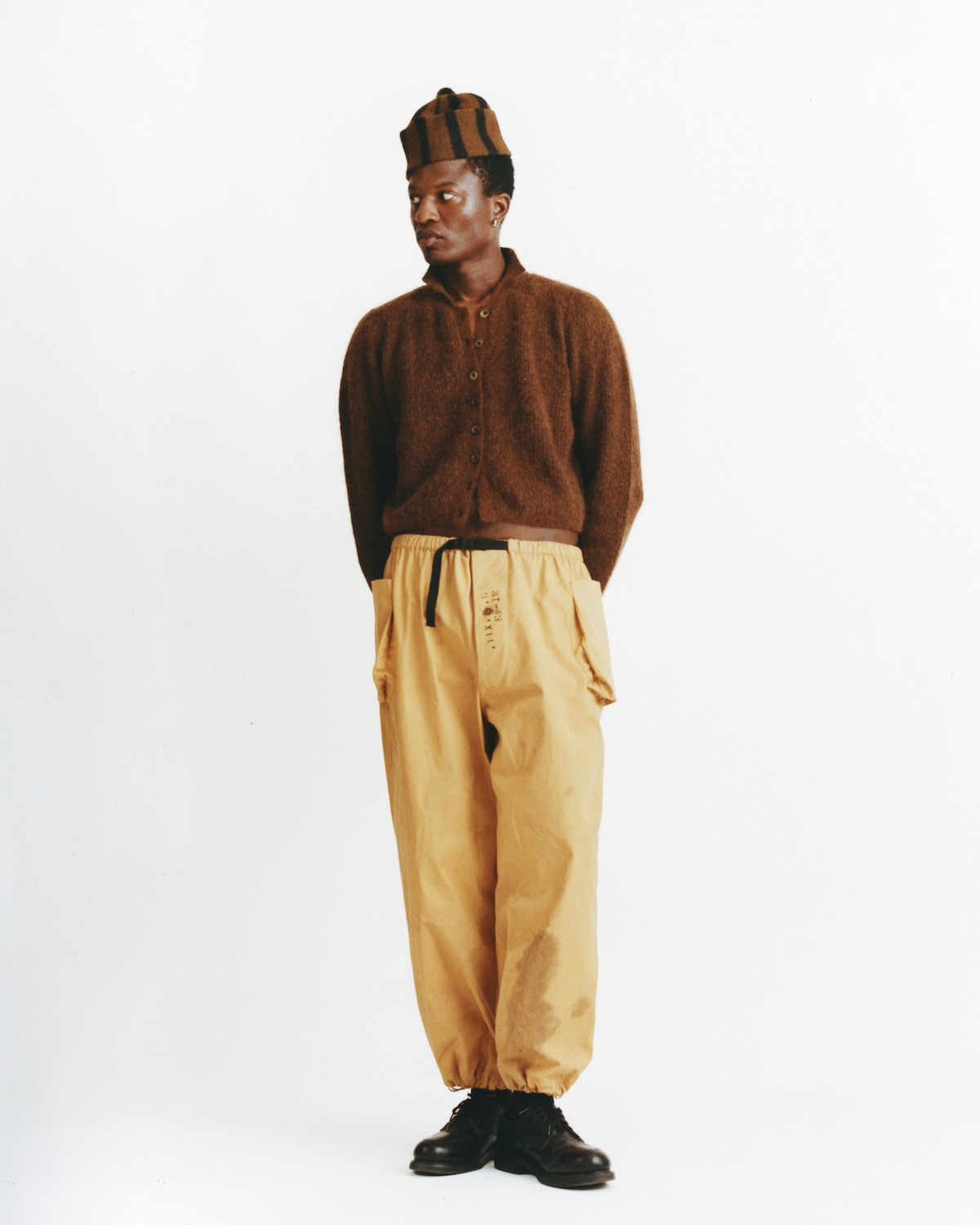
These subtle refinements, McKnight says, also come by virtue of finding a new sense of confidence in his thirties – slowing down and approaching things more intentionally. ‘Running a brand in New York, you get the highest highs, but you also have to take care of yourself,’ he says. ‘That’s something you start to understand as you get older. I check in with myself more now – mentally and physically – to make sure I’m feeling decent. I’m actively trying to slow down. I really believe that when clothes are made with care, you can feel it.’
In their words
‘As somebody who's been in fashion for a little while, I find that there's a little bit of a disconnect between what people are wearing on a regular basis and some of those bigger runway moments. It's no shade. I think things that sort of challenge what clothes can be are almost like art. What I’m interested in is this shared experience that we all have of figuring out what the hell we're going to put on every morning. You get up, you’re groggy, you get your coffee, and then you're like, “How do I want to portray myself today?” I really wanted to focus on that – making those staples that just feel right.
‘Over time, I have started to connect it to what I’m going through, whether that’s an emotional theme or ideas of home. These sort of more day-to-day, experiential moments in our lives that I think define us more than the big moments. I think that using myself almost makes my work [more universal] – by highlighting something that I'm going through, there's a chance that somebody else is going through it too.’
Where to buy
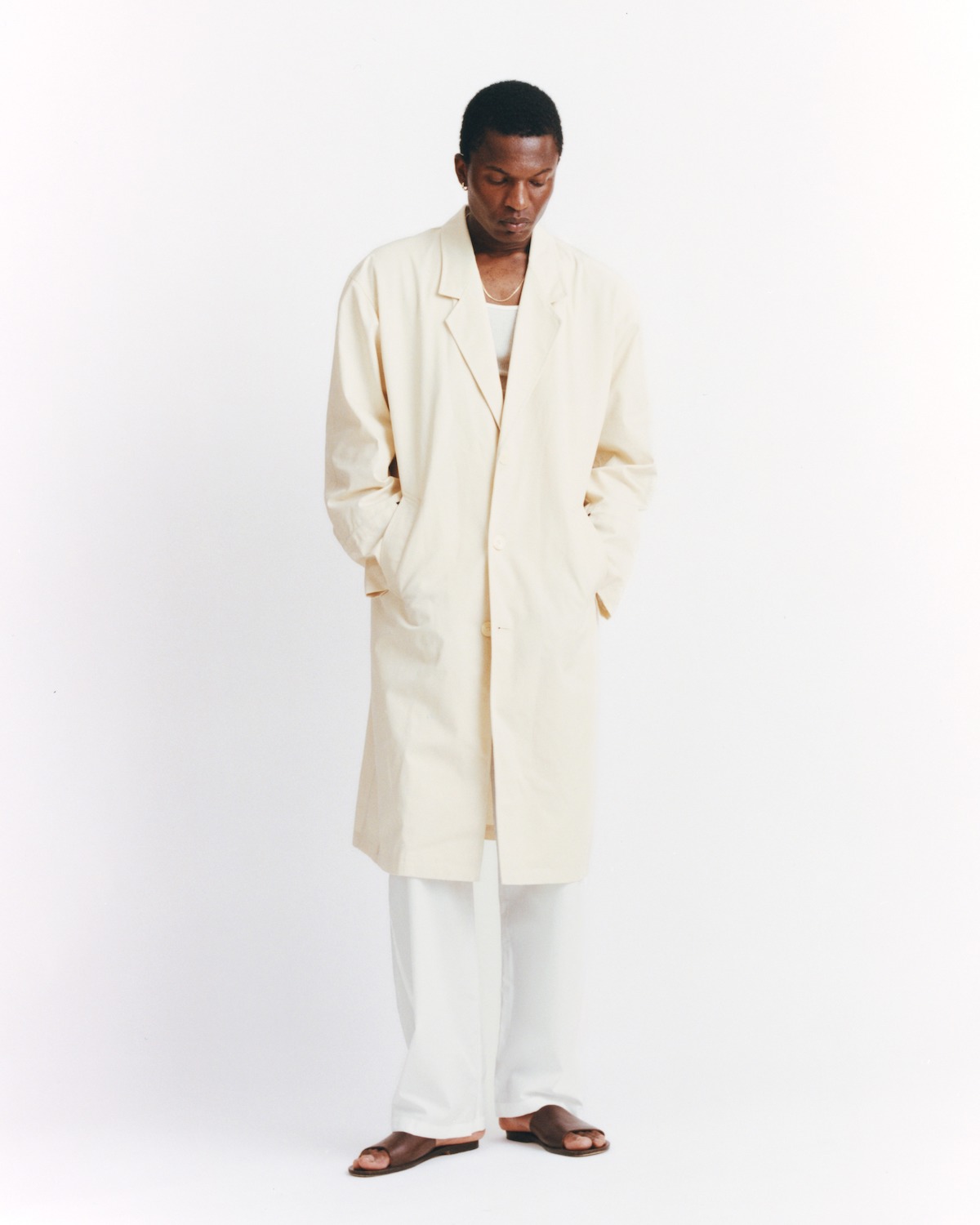
Orla Brennan is a London-based fashion and culture writer who previously worked at AnOther, alongside contributing to titles including Dazed, i-D and more. She has interviewed numerous leading industry figures, including Guido Palau, Kiko Kostadinov, Viviane Sassen, Craig Green and more.